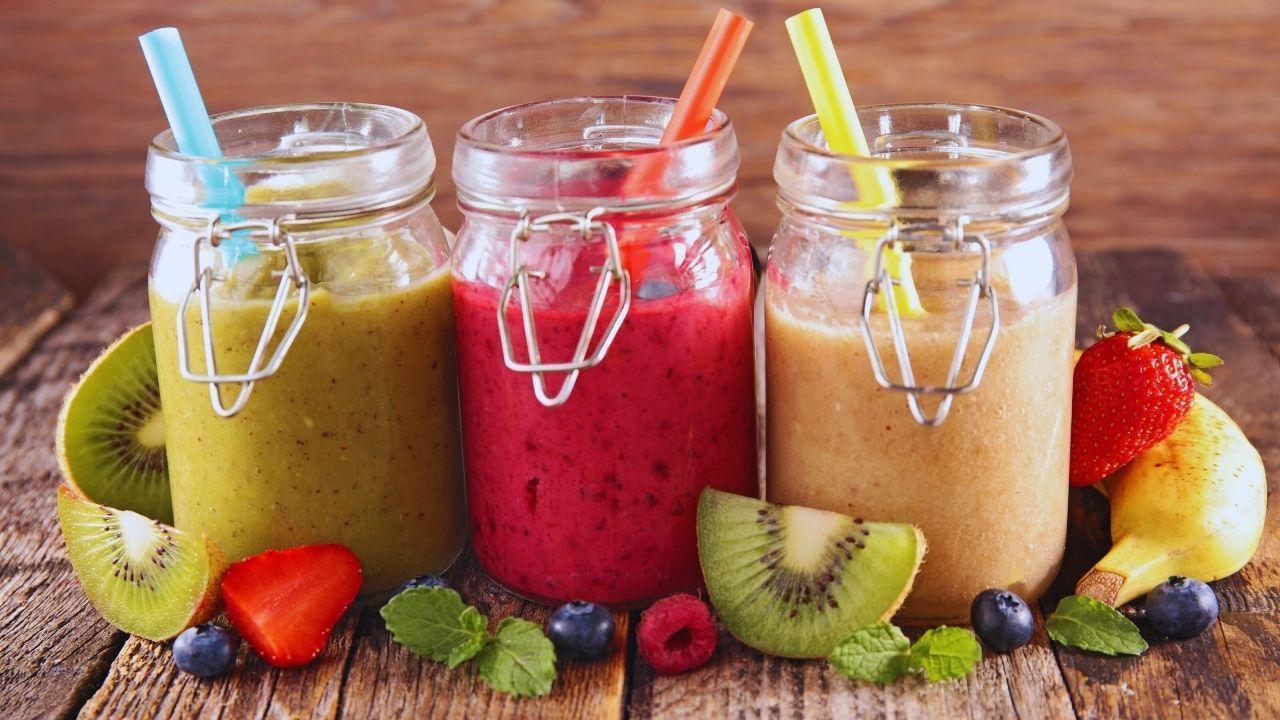You have not yet added any article to your bookmarks!

Join 10k+ people to get notified about new posts, news and tips.
Do not worry we don't spam!

Post by : Anis Farhan
The way we drink has changed as dramatically as the way we eat. Gone are the days when carbonated sodas or sugary fruit juices ruled supermarket shelves. Today’s consumers are more conscious, health-focused, and curious about what’s in their glass. The rise of functional beverages and fermented drinks represents not just a shift in taste but a complete redefinition of wellness culture.
Beverage innovation has become one of the most exciting frontiers in the global food and health industry. The focus has shifted toward drinks that do more than quench thirst — they boost immunity, improve digestion, enhance energy, and even support mental well-being. As we move into 2025, these transformative drinks are becoming symbols of mindful living and self-care.
The wellness wave has deeply influenced every corner of the food industry, but beverages have seen perhaps the most rapid evolution. Consumers today don’t just want hydration — they want function. A simple glass of juice is now expected to provide antioxidants, probiotics, or adaptogens.
The pandemic years accelerated this shift, turning immunity-boosting and nutrient-dense beverages into everyday essentials. Smoothies infused with protein, turmeric, collagen, or maca root became the new breakfast staples. Similarly, fermented beverages like kombucha, kefir, and tepache turned into mainstream wellness icons for their gut-health benefits.
This demand isn’t just a trend — it’s a lifestyle transformation. People now view beverages as tools for prevention, healing, and balance. It’s nutrition made portable, palatable, and powerful.
Smoothies have always been a symbol of health, but the 2025 versions are more advanced than ever. The functional smoothie market blends science with flavor — combining superfoods, supplements, and bioactive ingredients into one drink.
Today, consumers can choose smoothies designed for specific outcomes:
Energy Boosting: Blends with natural caffeine from matcha, guarana, or green coffee.
Skin Health: Smoothies containing collagen, antioxidants, and vitamin C.
Mental Focus: Adaptogen-rich blends with ashwagandha or lion’s mane mushroom.
Gut Support: Smoothies infused with probiotics or prebiotic fibers.
The key to their success lies in personalization. With wearable health tech tracking everything from hydration to nutrient levels, smoothies are being customized to individual needs. Major beverage startups now use AI-driven platforms to recommend smoothie formulations based on personal data — bringing precision nutrition into the mainstream.
While smoothies represent the science of wellness, fermented drinks embody its heritage. Fermentation, one of the oldest food-preserving techniques, is now enjoying a global revival. Kombucha, kefir, and fermented fruit tonics have found their way into cafés, supermarkets, and even luxury restaurants.
Fermented beverages are rich in live cultures and enzymes that support gut health — a crucial component of immunity and overall wellness. But beyond the health factor, these drinks are celebrated for their complex flavor profiles: tangy, earthy, slightly sweet, and refreshingly alive.
The global kombucha market alone is projected to surpass USD 10 billion by 2030, with innovations like coffee kombucha, herbal ferments, and alcohol-free craft tonics leading the charge. This movement reflects a broader consumer desire for authenticity — drinks that are real, raw, and rooted in nature.
Behind every bottle of a modern beverage is a blend of nutrition science and consumer psychology. Ingredients once confined to the health food aisle — spirulina, reishi mushrooms, or activated charcoal — are now common in mainstream drinks.
Consumers have become label detectives, looking for clean ingredients, minimal sugar, and maximum function. Companies respond with transparency, highlighting everything from amino acids to probiotics on packaging.
Adaptogens — natural substances that help the body cope with stress — are among the hottest ingredients in today’s beverage formulations. From ginseng teas to mushroom-based lattes, adaptogens have made calm energy a new standard in refreshment.
Even hydration drinks have evolved. Electrolyte beverages are no longer just for athletes; they’re designed for anyone balancing a busy lifestyle, with added minerals, antioxidants, and plant-based extracts.
A major challenge for functional beverages is balancing wellness with pleasure. Consumers want to feel good about what they drink, but they also crave taste. This has pushed beverage innovators to explore natural flavoring agents — herbs, botanicals, and exotic fruits that deliver both nutrition and enjoyment.
Trending flavors in 2025 include yuzu, hibiscus, lemongrass, basil, and even chili-infused combinations. Texture has also become part of the sensory experience — think chia-seed drinks, oat-based smoothies, and probiotic yogurts with pulpy consistency.
Interestingly, flavor nostalgia is also returning. Classic milkshakes and juices are being reimagined with healthier swaps like oat milk, coconut sugar, or plant proteins, offering comfort with consciousness.
Technology is playing a defining role in beverage innovation. Artificial intelligence, precision fermentation, and food tech are helping companies create products that were once impossible.
AI helps beverage brands predict consumer trends, analyze taste preferences, and develop new combinations faster than traditional R&D. Precision fermentation — the same technology used in alternative protein production — allows scientists to grow specific probiotics or flavor compounds without traditional agriculture.
Smart manufacturing also ensures sustainability. From biodegradable packaging to carbon-neutral production plants, the future of beverage creation is increasingly eco-friendly. Even vending machines and cafés are going digital — allowing customers to customize their drink formulas on-screen in real time.
Modern consumers no longer separate health from sustainability. A truly “healthy” drink must also be ethically and environmentally sound. Beverage brands are now rethinking their entire value chain — from sourcing to bottling.
Reusable glass bottles, compostable cups, and waterless concentrates are reducing waste. Brands are also partnering with local farmers to source organic ingredients, cutting transportation emissions and supporting regional economies.
Fermented drinks, interestingly, fit perfectly into this model — they require minimal processing, low energy, and natural preservation. This makes them a sustainable star in the beverage category.
A fascinating new segment within beverage innovation is the “mood drink.” As mental health awareness rises, beverages targeting relaxation, focus, and emotional balance are becoming popular.
Drinks infused with L-theanine, chamomile, lavender, or nootropics claim to reduce stress and enhance focus without the crash of caffeine. These are marketed as lifestyle enhancers — beverages for mindfulness, not just nutrition.
In 2025, the concept of “mindful sipping” has grown — where beverages are tied to moments of calm, reflection, or creativity. From evening relaxation tonics to focus-enhancing morning shots, mental wellness drinks are redefining our emotional relationship with hydration.
Looking ahead, the beverage industry is heading toward hyper-personalization. Smart bottles connected to apps now track hydration levels and recommend refills infused with nutrients based on your body’s needs.
AI and biotechnology are also enabling “nutrient mapping,” where your beverage could soon adapt its formula to your mood, weather, or even sleep cycle. Imagine a morning drink that energizes gently, an afternoon one that sustains focus, and an evening tonic that relaxes you before bed — all scientifically calibrated.
Such innovation transforms drinking into a personalized wellness ritual, merging technology with daily self-care.
Global influences are shaping beverage menus everywhere. Asian fermented drinks like Korean makgeolli and Japanese amazake are gaining Western popularity. Meanwhile, Latin American classics like tepache and agua fresca are being reinvented with modern twists.
Cultural exchange in beverages celebrates diversity — it introduces people to new flavors and histories while supporting small farmers and artisans. The global beverage scene today mirrors a culinary passport — one sip can take you from Mexico’s pineapple ferments to Japan’s rice-based elixirs.
Despite the excitement, the beverage industry faces real challenges. Overcrowding in the functional drink space means brands must differentiate with authenticity, not just buzzwords. Consumers are increasingly skeptical of unverified health claims, pushing companies to back up marketing with science.
Sustainability also remains a double-edged sword — while consumers demand eco-friendly packaging, implementing these systems adds costs. Likewise, balancing natural preservation with shelf life remains a technical challenge for fermented products.
Still, innovation continues to thrive as brands invest in research, collaboration, and transparency.
Beverage innovation in 2025 reflects a broader cultural truth — people want more from what they consume. Drinks are no longer just about taste or refreshment; they are about purpose, health, and connection. Whether it’s the tang of kombucha, the creaminess of a collagen smoothie, or the serenity of a lavender tonic, every sip tells a story of evolution — both human and technological.
From ancient fermentation to futuristic functional blends, the world’s drinks are becoming healthier, smarter, and more meaningful. In this fluid future, what we choose to drink will define not just our health but our values.
This article is intended for informational and educational purposes only. It does not substitute professional health or dietary advice. Readers should consult qualified health professionals before making significant dietary or supplement changes. Product examples are referenced as general trends and not specific endorsements.










Study Warns Using AI for Medical Advice Is ‘Dangerous’ as Users Get Inaccurate Health Guidance
A major new study reveals that artificial intelligence (AI) chatbots and tools may give misleading o

Top Sci-Fi Movies Streaming on Netflix This February: Must-Watch Picks for Genre Fans
A curated news-style guide to the best science fiction films currently available on Netflix in Febru

BCCI Central Contracts Shake-Up: Kohli, Rohit Moved to Grade B as Board Reshapes 2025–26 List
Virat Kohli and Rohit Sharma have been placed in Grade B in the BCCI’s 2025–26 central contract list

Dalal Street Spotlight: Top 10 Stocks Investors Are Watching as Markets Open on a High
Indian stock markets begin the week with strong momentum, and several blue-chip and mid-cap stocks a

Market Movers Today: Key Stocks Set To Watch In Indian Markets
Indian equity markets are poised for active trading as several major companies, including Bharti Air

Milan Welcomes the World: Inside the Grand Opening Ceremony of the 2026 Winter Olympics
The 2026 Winter Olympics opening ceremony in Milan marked a defining moment for global sport, blendi